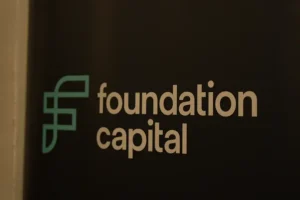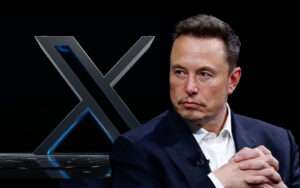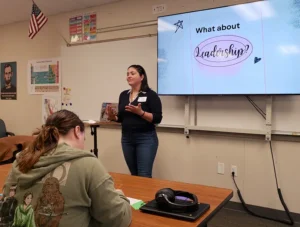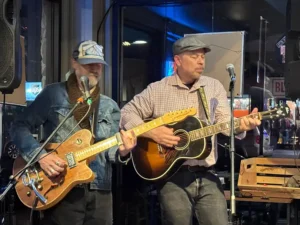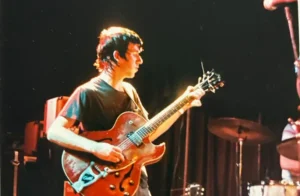
Jack McCauley an Innovator in Residence at Jacobs Institute for Design Innovation at UC Berkeley, a Professor at UC Berkeley, Co-Founder of Oculus, an American engineer, hardware designer, inventor, video game developer, and philanthropist. Jack is best known for designing the guitars and drums for the Guitar Hero video game series, and as a co-founder and former chief engineer at Oculus VR.

Jack Has Authored Numerous Research Papers in the Field of Artificial Intelligence (AI) and Mathematical Modeling of AI-Based Systems and is Currently Pursuing New Projects at his Private R&D Facility and Hardware Incubator in Livermore, California.
In this article, we wanted to delve deeper into your Oculus journey. Jack, could you please take us through the inspiration behind the creation of Oculus VR and how it all began for you?
In the VR world, there was a guy named Palmer Luckey who was a moderator of a VR forum. Through this forum, he connected with various individuals, one of whom was John Carmack, a video game engineer known for his work on 3D effects and CGI. Palmer was working as an intern for Mark Bolus, who had a VR company and Palmer managed the VR forum for him.
On November 13, 2023, Palmer, 18 years old at the time, received a prototype of a VR headset from Mark Bolus which consisted of a laptop screen and lenses. John created a demo game based on a published game by Xenomax. Palmer shared the demo with the CEO of Oculus, Brendan, a very articulate gentleman, although not a tech person. They decided to turn the protype into a product and launch it on Kickstarter. Through various connections, Brendan asked me for a meeting. You see what’s interesting is that I didn’t really have a resume. I got gigs through people I knew. The world I worked in was very small.
Brendan showed up at my studio with the item in his hand and his MacBook and ran the demo game that Carmack helped write. I was impressed by the demo game and saw potential in working together. I liked the guys and thought a small company startup would be a good fit for me. This was before it was called Oculus, by the way. The name Oculus came later.
The inspiration came from that forum, hosted by Palmer. All those people were at the forum except for me. They brought me on board, we founded the company and started hiring like crazy. Pretty soon we had 120 people working on two floors in our Irvine, California office. Most of the video game industry is in Southern California. I’m in Northern California, which is more Silicon Valley stuff, although I worked in entertainment, so I was down south quite a bit. Brendan and I travelled to China to find someone to build the headsets. A friend of mine, who I had worked with for a long time on behalf of Activision, knew me well. She took on the project and successfully launched it with the first two headsets, DK1 and DK2.

“Hidden Gem of the Silicon Valley” documentary Executive Producer Sergey Ivannikov, with Jack J. McCauley, inventor of “Guitar Hero” simulator.
So, what was the motivation to take the risk? The product?
It’s not the type of thing I usually work with, and video games don’t require rich graphics. I know that there is emphasis on high-quality computer graphics, but really, it’s about strategy, social components, and gameplay. It’s how the game plays that makes it successful. Some, you know, sort of blocky video games have done pretty well, and some with super-rich graphics do not do so well. It’s all about how it plays. That was my problem with this: how are you going to create a video game with the ability to keep people enthralled and use the game long term? That was a challenge.

What were the biggest technical challenges you faced while developing the Oculus VR system? And how did you overcome them?
The biggest problem with VR is vestibular illness or dizziness. It makes ten percent of people who use VR nauseous and dizzy so obviously that’s a big problem.
So how did you overcome them?
After I left Oculus, I spent about a year working on that very problem, particularly accurate head tracking, but it’s more than that. It’s what your eyes see in the video game and what your body feels like when you are running in a video game and you’re wearing your headset. Your brain expects certain things and when they’re not occurring, it causes vestibular illness. So, to answer your question, we really didn’t get around that and I don’t think there is a way around that, at least for now.

McCauley Holds Numerous U.S. Patents for Inventions in Software, Audio Effects, Virtual Reality, Motion Control, Computer Peripherals, and Video Game Hardware and Controllers.
What does the industry look like today?
Horizon Worlds is Facebook’s attempt at making a virtual metaverse, which hasn’t worked out very well, primarily because of the way that it was introduced to the public. It wasn’t ready to be shown to anyone, yet they showed it anyway. Usually in a video game you start with a trailer and the trailer shows gameplay and then in the center of the trailer, maybe 20 percent through, you show a human being who’s playing the game. One of the characters in the game, an avatar, is actually a human and that draws people in and draws interest into the trailer and viewers want to try it. That didn’t happen with Horizon Worlds, so it was just a weird rollout.
An idea that I like is a sporting venue, like a football game, where you’d have a 360-degree camera at a seat location. You’d then sell tickets to that seat where there would be a VR headset. I thought that was a great idea, and a fan tried it out at a Sacramento Kings home game. Paul Jacobs owns the Kings, and he was on board with the idea, and they tried it out. I just don’t know what the outcome was. There are 20 million Quest headsets out in the world, so a sporting event is a great opportunity.

Victor Migalchan, Showrunner and Film Director, with Jack J. McCauley, Co-Founder of Oculus VR, during the Presentation of “Hidden Gem of the Silicon Valley” documentary.
How important was collaboration with other key individuals, such as Palmer, in bringing the Oculus VR systems to life?
Well, it was a startup company, and we initially had little money. I was an investor in the friends and family group and Brendan was a big investor, but we had to find people to give us money to produce this thing and get it going. The initial key investor was Andrew Horowitz who could also demo Oculus VR. By this time, there was already a buzz on the internet, and we were able to show it to people like Mark Zuckerberg. Although Mark’s not a video game guy, it was important to garner his interest in Oculus. We burned through 100 million dollars in a year. We had to pay out of pocket for the DK1 headset because my friend who found the supplier didn’t want to take the financial risk. It’s very risky so we had to write her personal checks. The key individuals that really brought it to life were Horowitz, Zuckerberg, and Brendan.

At Oculus, Jack Designed and Built the Oculus DK1 and DK2 Virtual Reality Headsets. Oculus Was Acquired by Facebook for $2 Billion.
What were the initial reactions and feedback you received when Oculus was first introduced?
There’s a show called Silicon Valley, which is hilariously funny that skewered Oculus. Prior to that, I didn’t have an idea of the perceptions of the company or how popular it was. But the story was very popular, and the initial reaction was positive. People loved the idea of an 18-year-old working in his basement and it took off. My contribution to the company was primarily getting stuff done. We hired some really good people. I was the oldest person at the company by at least ten years.
When we got acquired by Facebook, I thought what am I going to do there? I went to visit, and I saw all those beanbag chairs and tables that you’d sit across from people you didn’t work with. I just couldn’t work there. It’s not a video game company. It’s an advertising company.

Jack Was Awarded a Full Scholarship to Attend the University of California, Berkeley Where He Earned A BSC., Eecs in Electrical Engineering and Computer Science in 1986.
In what ways has Oculus advanced since its initial release, and what future developments do you envision for the technology?
Looking towards the future, I believe there is a huge market for spectator experiences, such as being able to watch or even drive along with Formula One racers in real time. However, there may be resistance from sports teams who rely on ticket sales. Overall, Oculus has seen success, but there is still room for future developments and improvements.
How did the success of Oculus influence your perspective on virtual reality and its potential in various industries beyond gaming?

Jack J. McCauley Honored for his Pioneering Achievements at the BEST Business Awards Ceremony & Gala, organized by Council For Cross Cultural Affairs.
I believe that the success of Oculus has significantly influenced my perspective on virtual reality and its potential in industries beyond gaming. I see immense opportunities in areas such as sports, design, construction, and even platforms like roadblocks. The concept of the metaverse, where individuals can create their own currency, rules, and policies, is a fantastic idea that could have far-reaching implications.
Could you please shed light on any other project innovations you are currently working on in the technology space?
I have been working on some projects in environmental engineering. In the past couple of years, I have built two small electric vehicles as a way to learn more about them. I have also worked on rebuilding and modifying scooters and bicycles. Recently, I have been focusing my efforts on drone advancements, specifically the DJI drones.
I have been teaching EV engineering at UC Berkeley, so I have a good amount of knowledge in that area. I am not an environmentalist, but I am enthusiastic about electric vehicles.
For nearly a year, I was involved in researching climate change. I had no prior knowledge on the topic, so I wanted to find out more about it. What we discovered goes against popular opinion — it’s not CO2 that is causing the earth to warm up. Since 1968, the earth has been getting warmer and rainier, but we don’t know why.
As for electric vehicles, I believe they are here to stay. They are more efficient than gasoline-powered vehicles, with EVs having efficiencies of around 50 percent, including the carbon fuels used to produce electricity. In contrast, gasoline-powered vehicles only have efficiencies of less than 20 percent. Driving an EV just makes sense, especially since you don’t have to rely on gas stations as much. EVs are still in their early stages, but I don’t think they will go away anytime soon.
Could you look back at your own journey with Oculus and provide advice for aspiring inventors and entrepreneurs trying to make a mark in the tech industry?
When you’re an aspiring inventor trying to get your foot in the door, the problem is that you don’t know anybody. So, my advice is to work for a company and stay there for five years. Don’t jump around from company to company. When I see resumes of people who have only been at a company for six months or nine months, I think that they won’t stay very long. They’ll come in, learn a few things, be unhappy, and leave. This indicates that they’ll be unhappy wherever they go. So, stay at one company for five years, learn and polish your skill set. You may even need to work on your own at night to improve your skills. By the end of those five years, you’ll be able to go to a startup company and make a major impact because you’ll have all that experience behind you.

Jack J. McCauley Honored for his Pioneering Achievements at the BEST Business Awards Ceremony & Gala, organized by Council For Cross Cultural Affairs.
What projects do you plan to work on in 2024?
As of now, I am focused on completing a foundation that I started. The foundation aims to provide training to disadvantaged individuals, particularly those with potential in fields such as welding and programming robotic machines. The goal is to help uplift their lives and enable them to overcome challenging circumstances. However, due to the COVID-19 pandemic, the progress of this foundation has been delayed for three years. Nonetheless, my team and I are actively working on resuming operations and overcoming the setbacks caused by the pandemic.
Furthermore, I am also considering potential collaborations on defense projects, potentially with the United States Space Force. I have recently gone through an interview process with them and am currently awaiting their response. These projects would primarily focus on drone abatement, which is an area I have previously been involved in.

